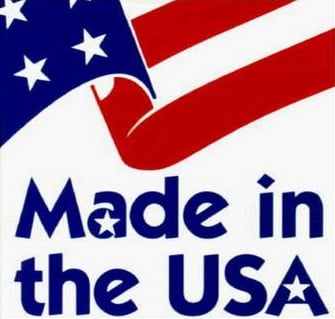Putting the pieces together...  In the first part of this series on the California Mechanics Lien, we defined some legal terms that are important to know if you want to understand the California Mechanics Lien Process. In this, part 2, the concept and requirements for a mechanics lien in California, are the topic.
In the first part of this series on the California Mechanics Lien, we defined some legal terms that are important to know if you want to understand the California Mechanics Lien Process. In this, part 2, the concept and requirements for a mechanics lien in California, are the topic.
What is a California Mechanics Lien?
The Mechanic's Lien is a NOTICE of a charge, hold, claim, or encumbrance upon property. The term implies the right which California law gives to have a debt satisfied out of the property. The California State Constitution provides Mechanic's Lien law to help assure that a mechanic gets paid for labor and/or materials supplied to erect, repair or otherwise improve the property of another. A mechanic, for contractors purposes, is anyone (individual, company or corporation), other than the property owner themselves, who supplies materials or who furnishes labor to improve real property.
A mechanics lien is recorded with the county recorder and is public information. Anyone who does a property title search at the county recorders office will "see" the mechanic's lien. The mechanic's lien gives notice to any interested party that the lien claimant (the person or company that claims the mechanic's lien) has reserved right to pursue a lawsuit to have their debt satisfied "out of the property."
Mechanic's liens are valid even after the property is sold so most potential buyers of the property would insist that the property be "free and clear" before making a purchase. Also, lenders will not want to lend money on any property that has a mechanic's lien against it since the lien claimant would have a higher "priority" position on the property title than the lender. Having a higher "priority" determines who gets paid first, next, and so on. The lien claimant might win a judgement and foreclose on the property to get paid out of the proceeds. Depending on the situation, this could mean the proceeds from a foreclosure might not be enough to pay the lien claimant AND the lender in which case the lower priority lender would lose out!
When a mechanic's lien is "perfected", the lien claimant has taken his case to court and received a judgment. The lien claimant then has the right to foreclose on the property and to use the proceeds to satisfy the judgment... taking into account that "others" with a higher position on the property title, like the first or second mortgage holders (if any), must be paid first.
Realistically, mechanic's lien judgements rarely result in foreclosure. The judgement creditor is usually very enthusiastic about paying the judgement long before it goes that far.
Note: Mechanic's Lien Law varies significantly between projects on private property & projects on public works. The information contained in this document refers to labor & materials supplied on privately owned projects.
Requirements you MUST meet BEFORE you can place or File a California Mechanics Lien.
-
You must be a California Licensed Contractor with a license that was current and in good standing during the period starting when the contract was signed through when the labor or materials were furnished. California DOES NOT allow an illegally operating, un-licensed contractor to lien! If your license has expired because you forgot to pay your renewal fees, before California Law, you are un-licensed and have no lien rights!
-
You must have a valid contract that is both legal and enforceable between you and the property owner. This is critical. Your contract form must comply with ALL laws in effect at the time it was signed (like these California Construction Forms)! Be extremely careful with whom you purchase your contract forms. Be extremely careful that all required notices are given. Make sure you have complied with ALL the requirements of the consumers right to cancel any home improvement contract. A mistake here can cost you ALL THE MONEY rightfully due you!
-
You must have actually furnished labor or materials to erect, repair or otherwise improve the owner's property. You cannot file a lien for intangibles such as "lost profit." You can only lien for the value of ACTUAL furnished labor or materials at the time the job was completed or work ceased.
-
Unless you have a direct contractual relationship with the property owner, you must timely give notice to the property owner of your right to lien by providing the owner with a proper, statutory California Preliminary Notice (aka 20-Day notice, CPN, Pre-Lien, Preliminary Notice).
-
You must follow and comply with the timeline set forth in California Law. This is the real key to the entire process. Timing is everything! If you miss any single deadline, your lien rights will be lost or at least greatly impaired!




 In the next part of this series of articles on the California Mechanics Lien Process we will discuss the all important California Preliminary Notice IN DEPTH!
In the next part of this series of articles on the California Mechanics Lien Process we will discuss the all important California Preliminary Notice IN DEPTH! I received a bid for a new roof on my house last week here in California. At the top of his roofing bid form and at the bottom of the advertisement from him that I responded to, this very large roofing contractor proudly displayed "bonded and insured".
I received a bid for a new roof on my house last week here in California. At the top of his roofing bid form and at the bottom of the advertisement from him that I responded to, this very large roofing contractor proudly displayed "bonded and insured". 